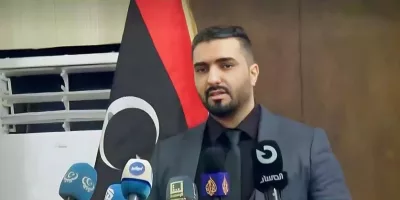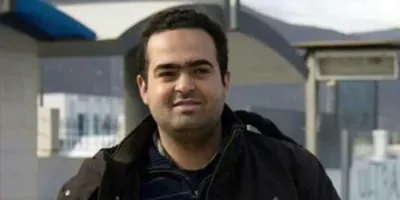Since March 5, 2023, until today, two years have passed since the issuance of exceptional and unjust sentences by the Emergency State Security Criminal Court under the Emergency Law. Despite the lifting of the state of emergency in Egypt, this court continued to try activists and human rights defenders who worked to support victims of enforced disappearance, torture, the death penalty, and other violations in Egypt.
The number of these defenders amounts to 31 victims (24 males and 7 females), including 14 detainees in Case No. 1 of 2021 Emergency State Security Felonies, registered under No. 1552 of 2018 Supreme State Security Inventory, and registered under No. 703 of 2021 New Cairo Felonies, known in the media as the “Egyptian Coordination for Rights and Freedoms” case. The sentences issued against them included: life imprisonment for 17 individuals, 15 years of rigorous imprisonment for 7 others, 10 years of rigorous imprisonment for 4 victims, and 5 years of rigorous imprisonment for 2 individuals. Only one person was acquitted. All those sentenced were placed under police surveillance for five years after completing their sentences and were added to terrorism lists.
Over four years and five months, this case witnessed grave violations and practices that breached fair trial standards. The violations began with a security campaign launched by the Egyptian Ministry of Interior against human rights defenders, students, and lawyers in October 2018. Victims were arrested based on investigations conducted by Major Mohamed Abdel Salam, an officer in the National Security Sector. The prosecution interrogated the defendants and accused them of various charges, including: “joining a terrorist group with knowledge of its objectives, funding the group, committing a crime of financing terrorism, and broadcasting false news inside and outside Egypt to achieve the group’s objectives.” Renewal sessions repeatedly upheld the continued detention of the accused except for two defendants who were released. The rest were held in pretrial detention for over two and a half years.
In May 2021, the Supreme State Security Prosecution began summoning some of the defendants for further investigations, eventually referring them to the Emergency State Security Criminal Court based on a decision issued by Counselor Khaled Diaa, the Attorney General of the Supreme State Security Prosecution, on August 23, 2021. Although a final, non-appealable verdict was issued in March 2023, the injustice against them continues, with a deliberate disregard for the principles of both international and Egyptian law — appearing to be clear retaliation for their effective role in human rights advocacy in Egypt.
The defendants in this case faced numerous violations, including torture. Fourteen out of the sixteen defendants reported being tortured. Additionally, 15 defendants were subjected to enforced disappearance, while 7 individuals were ordered to remain in detention under Article 40 of the Anti-Terrorism Law No. 94 of 2015. Arrest reports for the other detainees were falsified by arresting officers, who recorded dates different from those reported by the defendants during investigations. Defense lawyers submitted telegrams during investigation sessions to document the true dates of arrest, yet the Public Prosecution ignored this evidence.
Several defendants were also denied adequate healthcare, which caused severe deterioration in their health due to poor conditions in detention facilities.
By analyzing the interrogation records of witnesses and the statements of all officers involved, the Committee for Justice (CFJ) Fair Trials team confirmed that the investigations lacked credibility and relied solely on written reports. None of the officers disclosed the source of their information, the duration of the investigations, or the personnel involved in the investigation missions.
The investigations also revealed the Public Prosecution’s failure to investigate the violations reported by the defendants during interrogations and subsequent detention hearings. The Prosecution ignored the defendants’ statements and the documented requests submitted by their defense teams.
Furthermore, four of the victims were interrogated without a lawyer present. Some defendants were subjected to the practice of “detention recycling,” and eleven out of sixteen defendants exceeded the three-year legal limit for pretrial detention. Notably, Mr. Ezzat Ghoneim, Director of the Egyptian Coordination for Rights and Freedoms, was subjected to detention recycling, spending three years and nine months — nearly four years — in pretrial detention.
Ultimately, all the defendants were tried before an exceptional court that lacked the minimum internationally recognized standards for fair trials: the Emergency State Security Criminal Court. This further indicates that Egyptian authorities deliberately targeted them because of their human rights work.
The verdicts were issued by an exceptional court whose rulings are final and not subject to appeal. This violates fair trial standards and deprives the accused of their right to appeal by eliminating a crucial level of litigation — the Court of Cassation. Moreover, holding the trial inside the Badr Prison Complex undermined judicial independence and revealed executive interference in judicial matters. It also denied the accused their right to appear before a natural judge.
Those convicted are now serving their sentences in inhumane conditions — deprived of family visits, held in solitary confinement, denied medical care, and subjected to repeated recycling into new cases.
Upon completing her five-year sentence, lawyer and human rights defender Hoda Abd El-Moneim — a lawyer at the Court of Cassation and the Supreme Constitutional Court, and a former member of the National Council for Human Rights — was shocked to find that authorities refused to release her. Instead, she was recycled into Case No. 730 of 2020 Supreme State Security Inventory on November 1, 2023, where she was re-detained without being freed. On November 17, 2024, she was recycled for the second time, while still in pretrial detention for the second case, and was added to Case No. 800 of 2019 Supreme State Security Inventory. She remains in pretrial detention to this day.
At the time, CFJ expressed its shock at the recycling of Hoda Abd El-Moneim into a new case using the same accusations, violating the legal principle that “no person shall be tried for the same offense twice,” as stipulated in Article 101 of the Egyptian Evidence Law and Article 116 of the Egyptian Code of Civil and Commercial Procedures.
On November 18, 2024, the Supreme State Security Prosecution interrogated human rights activist Aisha Al-Shater in Case No. 800 of 2019 Emergency State Security. She was accused of joining an illegal group while she was already serving a sentence in prison. This new accusation arose while she was already serving her sentence in a separate case, with a possibility that the new case may soon proceed to trial.
Several United Nations special mechanisms addressed the grave violations linked to this case, issuing three official communications to the Egyptian authorities between May 2023 and January 2025, expressing deep concern over the unfair trials faced by the lawyers, human rights defenders, and activists involved. These communications detailed numerous systematic violations they endured.
On May 24, 2023, the UN Special Procedures expressed concern over the harsh sentences issued against lawyer and activist Hoda Abd El-Moneim, human rights activist Aisha Al-Shater, and lawyer Mohamed Abu Huraira. They cited incidents of enforced disappearance, torture, denial of healthcare, and prosecution before exceptional courts lacking fair trial guarantees, in addition to their arbitrary inclusion on terrorism lists.
On January 22, 2024, UN mechanisms documented the recycling of Hoda Abd El-Moneim into new cases with identical accusations — a clear violation of the principle that no person shall be tried twice for the same crime. The report also highlighted violations related to her denial of medical care and her detention under harsh and inhumane conditions.
On January 8, 2025, UN mechanisms reiterated their concerns about these ongoing violations, expressing alarm over the continued recycling of Hoda Abd El-Moneim and Aisha Al-Shater using identical security charges — a violation of the principle of non-duplication of punishment — alongside deliberate medical neglect, torture, and ill-treatment in detention, which amounted to cruel and inhumane treatment.
The UN mechanisms, in these reports, called on the Egyptian authorities to immediately and unconditionally release all arbitrarily detained human rights defenders, end the practices of prolonged pretrial detention and detention recycling, and ensure that judicial procedures comply with both national and international legal standards — particularly the provisions of the International Covenant on Civil and Political Rights.
The field of human rights work in Egypt has become increasingly threatened due to the repeated targeting of human rights defenders, in violation of the Declaration on the Right and Responsibility of Individuals, Groups, and Organs of Society to Promote and Protect Universally Recognized Human Rights and Fundamental Freedoms.
CFJ emphasizes the serious risks and violations faced by human rights defenders, including arrests, enforced disappearances, travel bans, fabricated cases, false accusations, and other abuses.
CFJ calls on the Egyptian authorities to fulfill their obligations under the International Covenant on Civil and Political Rights by halting arbitrary detention and enforced disappearance practices against activists, human rights lawyers, journalists, and others. The organization also urges the authorities to create a safe environment that enables human rights defenders to carry out their work without fear for their freedom or personal safety.
CFJ also calls for a review of laws that restrict the capacity of Egyptian civil society and allow security authorities to interfere with the work of civil society organizations. The committee stresses the importance of opening dialogue between the Egyptian government and these organizations, recognizing their crucial role in monitoring Egypt’s human rights situation and ensuring its protection.
CFJ further urges the Egyptian authorities to overturn the unjust sentences issued against the defendants in the “Coordination” case, release them all without discrimination, drop the charges filed against them, end their deliberate targeting, and provide a safe and supportive environment for them to continue their legitimate and peaceful human rights and legal work.
The Committee for Justice (CFJ)
March 2025






